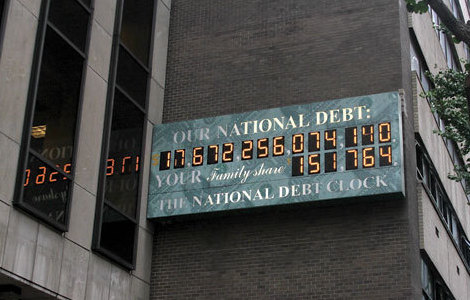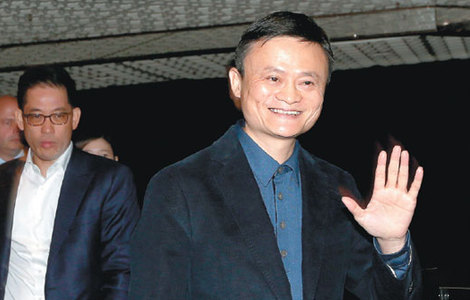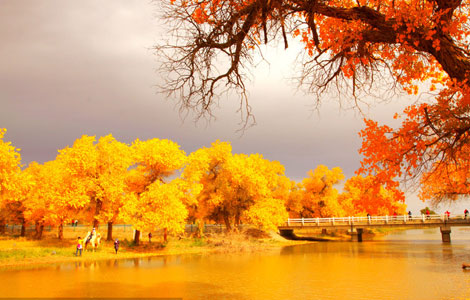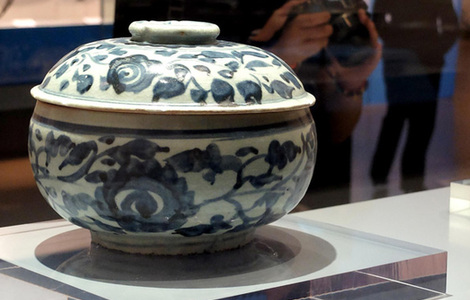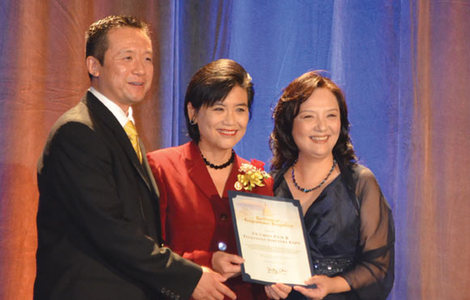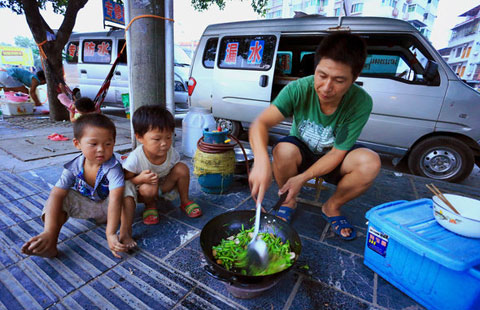Dubai to increase its economic attraction
Updated: 2014-09-17 20:55
By Lei Xiaoxun(chinadaily.com.cn)
|
||||||||
Since 1894, when Dubai launched its first tax-free port to attract regional business, the reigning Al Maktoum family has supported commercialism and mercantilism, and that legacy has helped shape Dubai's present-day economy, said an executive of the emirate's promotional advisory firm.
Cong Hongbin, managing director of Invest Dubai, said he was impressed by the remarks of the late Sheikh Saeed bin Maktoum bin Hasher Al Maktoum, who pioneered the business-centric path for Dubai and said that "anything that is good for merchants is good for Dubai".
Cong explained the concept with a Chinese paradigm: "I build the stage, and you perform." It refers, he said, to how authorities explore the best resources to establish a commercial environment and facility that will allow businesses to succeed.
He compared Dubai's small and medium-sized enterprises to cells that generate, citing the fact that more than 40 percent of the United Arab Emirates' GDP comes from them.
"The delicately interwoven business cells are the engine of Dubai's success, a living example of how a resource-scarce place can still flourish," Cong said.
He also underscored the importance of learning the city's history for people who want to live and work in the city.
"The vision of the Al Maktoum family, its determination and perseverance are what has built the incredible Dubai business model," he said.
Standing at the top of the Burj Khalifa, currently the world's tallest building, visitors can use high-tech binoculars to see Dubai's landmarks alongside photos of the same location few years ago, a decade ago and many decades ago with the help of satellite imaging and computing technology.
People marvel at seeing that where the phenomenal buildings and gardens of Dubai, the so-called "Miracle in the Desert", now stand was barren sand not that long ago, Cong said.
Being part of the seventh-most resource-rich nation in the world doesn't necessarily mean Dubai is as lucky as Abu Dhabi, which has 94.5 percent of the UAE's total oil reserve.
In order to diversify its economy, Dubai authorities turned their attention to the trade, services, logistics and financial industries. Even after 1967, when oil was discovered, the eighth Dubai ruler from the Al Maktoum family, the late Sheikh Rashid bin Saeed Al Maktoum, decided to use oil revenue to transform Dubai into an important commercial and cultural hub.
Existing ports were dredged and expanded, while new ports were constructed with loans from a variety of creditors. The Jebel Ali Free Zone soon became one of the busiest free economic zones in the world and now is the third-busiest transit trade port in the world after Hong Kong and Singapore.
Connecting European, African and Asian markets, Dubai aims at becoming an integral part of the global trade mechanism. Its economic policies include low customs duties, 100 percent repatriation of capital and profits, no direct taxes on corporate profits or income and no foreign exchange controls, trade quotas or other barriers.
Dubai uses its proximity to the world's dynamic economic regions to compete with rivals such as Shanghai, Hong Kong and London to serve the markets of Africa, Europe and the Middle East.
The efforts paid off as the World Bank's Ease of Doing Business report for 2014 listed the UAE as No 1 in the region and 23rd globally.
Cong is not the only Chinese observer to note that the emirate's vision and ambition has created a great opportunity for China's business community.
Tang Weibin, China's consul-general in Dubai, told business representatives on early this month that the current world economic and geopolitical situation means better prospects for Dubai.
He said that Chinese enterprises in Dubai should seize this opportunity for future growth as well as contribute to the sound development of the China-UAE strategic partnership. This year marks the 30th anniversary of the two countries' diplomatic relationship.
Currently there are more than 200,000 Chinese people living and doing business in Dubai. The two countries also are closely linked by burgeoning commercial activities.
China became Dubai's top trading partner in the first half of this year, with a trade value of 80.5 billion dirhams ($21.9 billion), overtaking India, the US and even the emirate's close neighbor Saudi Arabia, according to UAE customs statistics.
Boosted by China's growing middle-class, the inflow of Chinese businesspeople and tourists to Dubai has seen a robust increase.
According to the 2014 China Luxury Tourism White Paper jointly published by the Hurun Rich List and International Luxury Travel Market Asia, Dubai ranks as the third-most-favored tourism destination for affluent Chinese. It was No 8 last year.
The report said Dubai accommodated more than 270,000 Chinese travelers in 2013, an 11 percent increase compared to 2012. China is among Dubai's top 10 tourist-origin countries.
In addition, Chinese tourists spend an average of $650 on their trips to Dubai, 3.5 times that of travelers from the United States, according to a Visa research released last year.
Bilateral trade and business activities also play a pivotal role in relations, especially as Dubai's economy continues to recover after the international financial meltdown that hit the World Expo 2020 host city hard in 2008.
China-Dubai bilateral trade volume achieved $36.8 billion in 2013, a year-on-year increase of 18 percent.
Dubai imported Chinese goods worth $35.4 billion, and China is Dubai's top import destination, said Ahmed Mahboob Musabih, director of Dubai Customs.
Of that figure, 60 percent comes from transit trade or re-export, he said, referring to Chinese goods transiting through Dubai and then heading to other destinations.
Seventy percent of China-Arab trade is transited through Dubai, according to the Economist Intelligence Unit, a business think tank.
- Dubai to build world's biggest shopping center
- Dubai business hub hopes to attract Chinese investment
- Daredevils taking selfie over Dubai skyscraper
- British jockey Royston Ffrench wins Chengdu Dubai Intl Cup
- Chengdu Dubai Intl Cup purse totals 3.75 million yuan
- British jockey Royston Ffrench wins Chengdu Dubai Intl Cup
Most Viewed
Editor's Picks

|

|

|

|

|

|
Today's Top News
China to help Maldives build 1,500 homes
Improved quality 'key to growth', says Li
IMF assesses risks and benefits of shadow banking
Apple Pay eyes inroads to China
Sinopec privatization biggest in Xi's tenure
Beijing to tighten foreign hiring requirements
Hillary Clinton takes a big step toward 2016
US teachers visit China on fellowship
US Weekly

|

|
